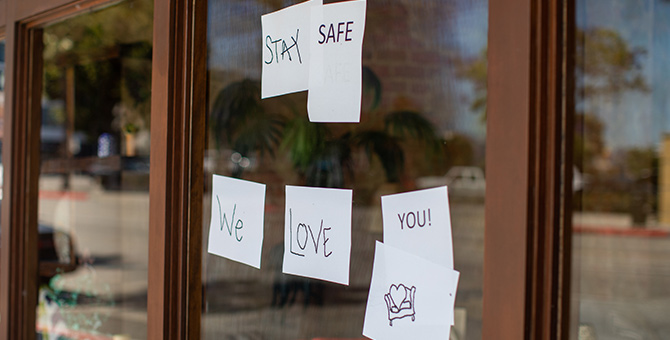Nonprofit organizations deliver services and promote policies that support the well-being and economic resilience of low-income people and people of color. They are even more critical when addressing the impacts of COVID-19. But nonprofits are feeling added strain from the pandemic as well.
What levels of disruption are they experiencing? What are the impacts on communities being served? How long will it take to bounce back to a pre-pandemic state? In April, the Federal Reserve System and Board of Governors surveyed community contacts across the United States to assess how organizations and the communities they serve were faring as the coronavirus progressed and “shelter-at-home” became the norm across the nation.
State of nonprofits in the Western US
According to the survey, nonprofits serving the Western United States are seeing increased demand and mounting financial pressures from the coronavirus pandemic.
More than 3 out of 4 respondents (76%) indicated demand for their services increasing or anticipated to increase. More than half of the respondents (55%) noted a corresponding decrease or anticipated decrease in their ability to provide services.
More than a quarter of respondents (26%) indicated they could operate for less than three months in the current environment before exhibiting financial distress.
Open-ended responses
For the Western United States, here are top concerns raised by nonprofits in response to open-ended questions.
- People losing their jobs or unable to work due to businesses closures.
- Small businesses facing challenges to long-term viability.
- Low-income people experiencing increased financial insecurity and having trouble meeting basic needs for food and housing.
- Social isolation and mental health issues during the pandemic are of concern for vulnerable populations.
- Nonprofits losing revenue and facing challenges operating while seeing increased demand for services.
- Low-income and vulnerable populations unable to access many government services, nonprofit services, and basic health care with most offices closed.
- School and childcare closures and lack of access to high speed internet disrupting work and education.
Read our research brief, Impacts of COVID-19 on Nonprofits in the Western U.S. for more detailed responses from nonprofits serving the 12th Federal Reserve District, which includes Alaska, Arizona, California, Hawai’i, Idaho, Nevada, Oregon, Utah, and Washington, plus American Samoa, Guam, and the Commonwealth of the Northern Mariana Islands.
Visit our Community Development Blog for survey data points specific to responses from nonprofits in the West.
Image credit: Benjamin Callahan via iStock.
You may also like to read:
- How are Nonprofits that Serve the Western U.S. Weathering the COVID-19 Crisis?
- Perspectives from Main Street: The Impact of COVID-19 on Communities and the Entities Serving Them
- Coronavirus Compounds Challenges for Low-Income Communities and Communities of Color
- Banks’ Early Responses to Assist Low-income Communities during the Coronavirus
- Mental Health during the Coronavirus
The views expressed here do not necessarily reflect the views of the management of the Federal Reserve Bank of San Francisco or of the Board of Governors of the Federal Reserve System.
